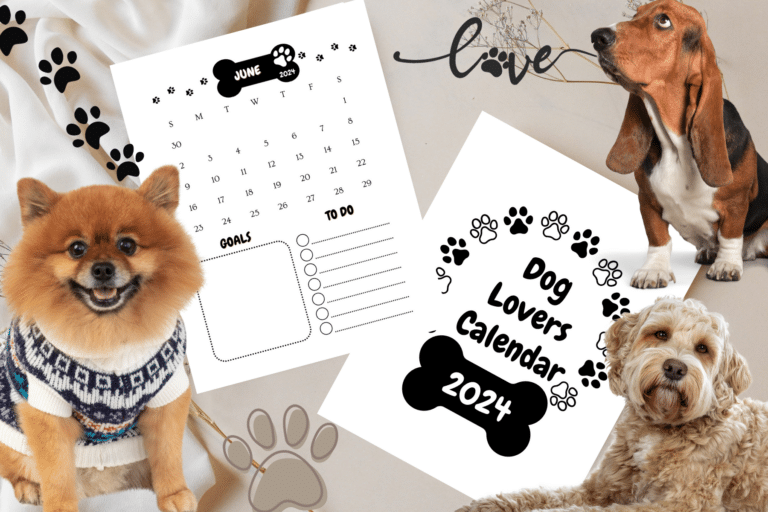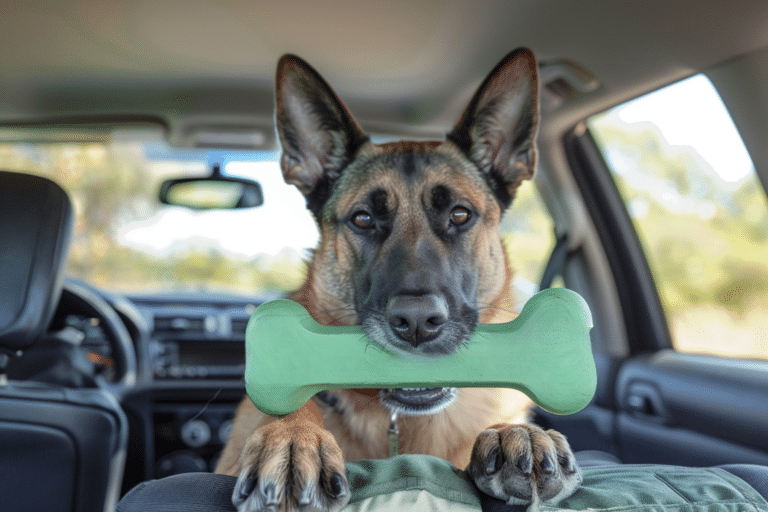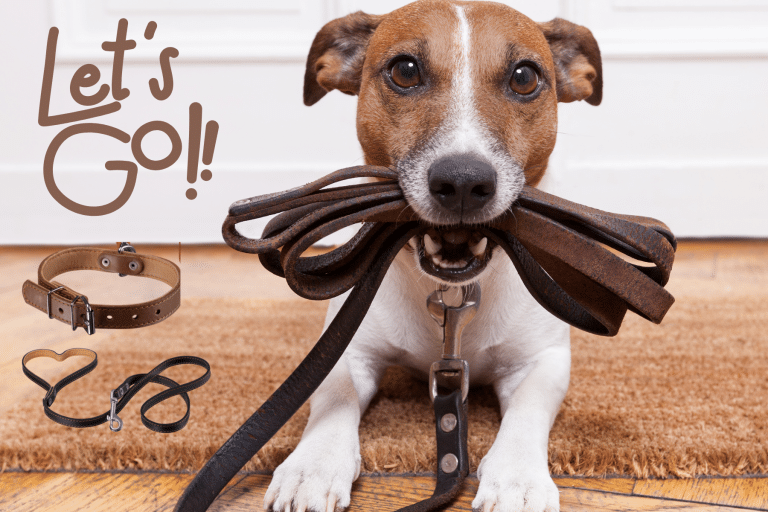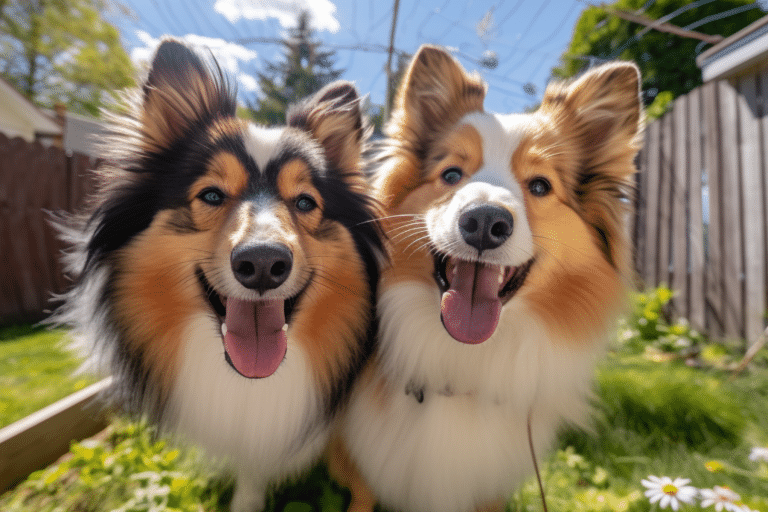First Things to Know Before Getting a Puppy in 2024
Welcoming a new dog into your home can be an exciting and rewarding experience for any new puppy parent. However, before bringing home your new dog, it’s a good idea to be fully prepared for the responsibility and commitment of becoming new pet parents. If you’re searching for the things to know before getting a puppy – you’ve come to the right place!
I may earn a small commission for affiliate links in this post at no extra cost to you. Please read my privacy policy and privacy page for more information. As an Amazon Associate, I earn from qualifying purchases.
Table of Contents
- 1. Decide on Adopting From an Animal Shelter or Responsible Breeder
- 2. Research Dog Breeds that Fit Well With Your Lifestyle
- 3. Prepare for Vet Bills and Research Pet Insurance
- 4. Puppy-Proof Your Home Before Adoption Day
- 5. Prepare for Basic Commands and Research Puppy Training Classes
- 6. Understand the Importance of a Lot Exercise for Your New Puppy
- 7. Plan for Dog Toilet Training and Potty Training
- 8. Prepare By Purchasing Puppy Care Items in Advance
- 9. Be Prepared for Housebreaking Accidents with Cleaning Supplies
- 10. Grab New Homes Puppy Checklist to Make Sure You’re Ready for Your New Dog
- What are the financial responsibilities of owning a puppy, including initial costs and ongoing expenses?
- What are the time commitments involved in raising a puppy, including training, exercise, and socialization?
- What are the different breeds of dogs and their specific characteristics, and how do you choose the right breed for your lifestyle?
- What are the basic supplies and equipment needed for a new puppy, such as food, bedding, toys, and grooming tools?
- What are the common health issues that puppies may face, and how can you best prepare for and prevent them?
As cute and lovable as young puppies may be, dog ownership requires a lot of work, effort, a lot of time, and the right puppy resources.
This is all to ensure you have the best pet and protect your new puppies well-being.
From reward-based training and mental stimulation to potty breaks and finding a good veterinarian, there are many factors to consider to become a responsible dog owner.
As a pet parent myself, I’ll help you prepare to be a new pet owner, and discuss some essential things to know and consider before getting your own puppy.

For first-time dog parents, I’ll help you make an informed decision and ensure a happy and healthy life for both you and your new perfect pup.
Whether you are a first-time dog owner or looking to add a new addition to your family members, these tips and guidelines are a great way to prepare for both the positive experiences and challenges of every single day of puppy parenthood.
So, let’s get into the best way for puppy care and make sure you are ready for the next step of bringing a new puppy home.

1. Decide on Adopting From an Animal Shelter or Responsible Breeder
The first thing to consider when bringing home a dog, whether you’re adding a first puppy or you’ve had many dogs, is carefully weighing the options of adopting from a local shelter or purchasing from dog breeders or pet stores.
Adopting your pet from an animal shelter not only gives a loving home to a deserving animal in need, but it also helps combat the issue of pet overpopulation.

Shelters often have a variety of breeds and mixed breeds to choose from, allowing you to find the perfect companion for your lifestyle.
Additionally, adoption fees from a shelter typically include vaccinations, spaying/neutering, and microchipping, reducing the initial costs of bringing a pet into your home.
On the other hand, choosing a good breeder can provide more predictability in terms of purebred dog characteristics and health problems history.
A reputable breeder prioritizes a safe place for the well-being of their animals from the early weeks, adhering to strict breeding standards and providing necessary healthcare for both the parent dogs and their puppies.
It’s imperative to thoroughly research and visit the breeder to ensure ethical practices are being followed.
Ultimately, the decision between adopting from a shelter or purchasing from a breeder should align with your personal values and circumstances.
As a pet parent myself to both a purebred Belgian Malinois police K9, Paco, and Mirage, a shelter pup mutt, I know whichever you choose, you’ll be delighted to bring home your new furry companion.
2. Research Dog Breeds that Fit Well With Your Lifestyle
A general rule to consider is researching dog breeds that align with your current lifestyle.
By looking at a specific breed this will significantly contribute to a successful and harmonious first year with your new puppy.

When thinking of adopting a dog, consider breed factors such as:
- Energy levels
- Exercise requirements
- Dog size
- Temperament
In addition, if you have an active lifestyle and enjoy outdoor activities, you may want to consider breeds that are known for their athleticism and love for exercise.
As a pet parent to a police K9 Belgian Malinois, I know firsthand from the first day they require a lot of attention, activity, and training as they are highly active.
On the other hand, I have a more laid-back shelter pup, Mirage, with lower energy levels leading to a now calmer home environment.
Additionally, keep in mind some dog breeds are more suitable for families with human babies and small children, while others may be better for individuals or couples living in a small apartment or with a tiny yard.
Taking the time to research and understand the new environment for different breeds will help you get on the right track to finding a puppy that fits into your daily routine.
3. Prepare for Vet Bills and Research Pet Insurance
It’s important to prepare for the financial responsibility that comes with owning a puppy, which includes anticipating veterinary expenses, healthcare costs, and puppy essentials.
Regular puppy check-ups, dog vaccinations, and preventive health treatments are essential for maintaining your new puppy’s health and well-being.
In addition, research and compare pet insurance options to safeguard against unexpected medical costs in the future.

Pet insurance can provide financial protection and peace of mind, covering a portion of vet bills in case of accidents, illnesses, or pet emergencies.
Review different pet insurance policies, considering factors such as coverage limits, deductibles, and exclusions to find the best fit for your budget and the level of protection you desire for your new puppy.
4. Puppy-Proof Your Home Before Adoption Day
To ensure the safety and well-being of your new furry friend, the best thing to do is put in some hard work to puppy-proof your home beforehand.
Puppies are naturally curious and prone to exploring their surroundings with their mouths, which can lead to potential hazards.

Start by securing and covering electrical cords and outlets to prevent chewing and potential electrical shocks.
Remove any toxic plants, chemicals, or household cleaners from your puppy’s reach.
Keep small objects, such as small toys, coins, and jewelry, out of their reach to prevent choking hazards.
Take the time to properly secure cabinets and trash cans from leftover human food to prevent access to potentially harmful substances.
Consider using baby gates to restrict new things and access to certain areas in your home.
5. Prepare for Basic Commands and Research Puppy Training Classes
In order to establish a strong foundation for your puppy’s behavior and obedience, plan for basic commands and research puppy school options.
Basic commands such as sit, stay, come, and down are essential for effective communication between you and your furry companion.

These commands not only ensure their safety but also help establish boundaries and reinforce positive house training behaviors.
Researching puppy training classes with a dog trainer can provide you with valuable resources and professional guidance to properly train your puppy.
These classes offer structured training programs and expert advice on techniques and strategies for effective dog training and reducing bad habits of man’s best friend.
6. Understand the Importance of a Lot Exercise for Your New Puppy
Regular exercise is important for the overall health and well-being of your new puppy.
Just like humans, at young weeks of age, dogs require physical activity to maintain a healthy weight, promote proper muscle development, and mental health, and prevent behavioral issues that can stem from pent-up puppy energy.

Providing your puppy with short periods for exercise not only helps them burn off excess energy but also stimulates their mind and supports their emotional well-being.
Engaging in activities such as walks, playtime, and interactive games not only strengthens the bond between you and your puppy but also potentially helps lead to good behavior.
Remember that the exercise needs of puppies vary based on their breed, age, and overall health, and consulting with your veterinarian can help determine an appropriate exercise routine tailored to your puppy’s specific needs.
7. Plan for Dog Toilet Training and Potty Training
Developing a plan for toilet training and potty training is essential for preparing for the arrival of a new puppy.
Consistency and patience are key when it comes to teaching your new puppy appropriate bathroom habits.
Begin by establishing a designated puppy elimination area outside and consistently take your puppy to this spot after meals, naps, and playtime.

Use positive reinforcement, such as praise and treats, to reward your puppy for eliminating in the appropriate location.
Additionally, establish a regular feeding and watering schedule to help regulate their bathroom habits.
Keep in mind that pet accidents are likely to occur during the training process (and the middle of the night), so be prepared to clean up any messes promptly and without punishment.
With a well-thought-out plan and consistent training, your puppy will gradually learn to associate the appropriate place for elimination, making the transition to a well-trained, housebroken dog much smoother.
8. Prepare By Purchasing Puppy Care Items in Advance

To ensure a smooth transition for your new furry friend, it is important to have the necessary puppy items ready before their arrival.
These essential items include things like:
- Dog crate or training crate
- Puppy bed
- Leash
- Personalized Dog Collar
- Pet ID tags
- Food bowl
- Water fountain
- Puppy food
- Puppy-safe dog toys
- Poop bags
- Pooper scooper
By having these puppy items prepared, you can create a comfortable and fun environment for your new four-legged family member.
9. Be Prepared for Housebreaking Accidents with Cleaning Supplies
Accidents are an inevitable part of the housebreaking process when bringing home a new puppy.
It is essential to be prepared with the proper dog cleaning supplies to address these incidents promptly and effectively.

Investing in multipurpose portable carpets and upholstery cleaners specifically designed for pet messes is key as they break down the organic compounds in urine or feces, eliminating any lingering odors that may attract your puppy to the same spot again.
Try some pet-friendly all-in-one floor cleaners to ensure a safe and sanitary home.
Additionally, having absorbent paper towels, poop bags, and disposable gloves on hand will help with the immediate clean-up process.
Remember to avoid using harsh chemicals or ammonia-based cleaners, as these can actually encourage your puppy to repeat the accident in the same area.
By being prepared with the right cleaning supplies, you can ensure a hygienic and clean living environment for both you and your new furry friend.
10. Grab New Homes Puppy Checklist to Make Sure You’re Ready for Your New Dog
The last thing to ensure a smooth transition into pet parenthood, it’s important to have a comprehensive new puppy checklist in place before bringing home a new puppy.
This checklist should cover all aspects of preparing your home and yourself for your new furry companion.

It should include essentials such as puppy-proofing your living space, purchasing appropriate food and water bowls, high-quality dog food, a comfortable bed, and safe toys for your puppy to play with.
Additionally, it is important to schedule a visit to the veterinarian for necessary vaccinations, a thorough health check, and advice on preventative measures like flea and tick control.
By having a well-prepared new puppy checklist, you can ensure that you are fully equipped to provide a safe and nurturing environment for your new puppy right from the start.
We’ve included an ultimate puppy pack printable for you.
Grab yours below!

FAQ
What are the financial responsibilities of owning a puppy, including initial costs and ongoing expenses?
Owning a puppy comes with various financial responsibilities, including initial costs for adoption/purchase, vaccinations, spaying/neutering, microchipping, and supplies like collar, leash, crate, and food.
Ongoing expenses include veterinary care, grooming, food, toys, training classes, and potential emergency medical costs. It’s important to budget for regular expenses like food and healthcare, as well as unexpected costs that may arise.
Proper financial planning ensures the well-being of your puppy and helps you provide a happy and healthy life for your furry companion.
What are the time commitments involved in raising a puppy, including training, exercise, and socialization?
Raising a puppy requires a significant time commitment, including daily training sessions, regular exercise, and consistent socialization efforts.
Training involves teaching basic commands, housebreaking, and addressing behavior issues.
Exercise is essential for their physical and mental well-being, requiring daily walks and playtime. Socialization is important for a well-adjusted adult dog, involving exposure to various environments, people, and animals.
Raising a puppy demands patience, consistency, and dedication to ensure they grow into a well-behaved and happy pet companion.

What are the different breeds of dogs and their specific characteristics, and how do you choose the right breed for your lifestyle?
There are numerous dog breeds, each with unique characteristics. For example, Labrador Retrievers are known for being friendly and great with families, while Border Collies are highly intelligent and energetic.
To choose the right breed for your lifestyle, consider factors like activity level, living space, time commitment, and grooming needs.
Research breeds that match your preferences and talk to breeders or shelters to get insights into their temperament and care requirements.
Ultimately, selecting a breed that aligns with your lifestyle and preferences will help ensure a happy and harmonious relationship with your furry companion.
What are the basic supplies and equipment needed for a new puppy, such as food, bedding, toys, and grooming tools?
For a new puppy, essential supplies include high-quality puppy food, food, and water bowls, a comfortable bed or crate, chew toys, grooming tools (such as a brush and nail clippers), collar and leash, ID tag, puppy pads or outdoor potty training supplies, and a few blankets or towels.
These items will help ensure the puppy’s health, safety, and overall well-being as they adjust to their new home.
What are the common health issues that puppies may face, and how can you best prepare for and prevent them?
Common health issues in puppies include parvovirus, worms, and dental problems.
To prepare and prevent these health issues, ensure your puppy’s vaccinations are up to date, schedule regular vet check-ups, feed a balanced diet, provide plenty of exercise, maintain good dental hygiene, and keep your puppy away from potentially harmful substances.
Early detection and treatment are key to addressing dog health issues quickly and effectively.
Final thoughts
When bringing a puppy into your home is a big decision that requires careful consideration and lots of preparation.
By knowing the responsibilities and costs involved, as well as the basic dog training and puppy care, you can ensure a smooth transition for both you and your new furry friend.
Remember to also research the best dog breed for your family and consult with a veterinarian to determine the best fit for your current lifestyle.
With the right knowledge and preparation, you can provide a happy and healthy home for your new puppy.
Want more great basically dogs fun? Don’t miss a bark! Follow us on Pinterest, Facebook, or Instagram!
Your turn
Are you adopting a new puppy soon? Which of these things to know before getting a puppy is your favorite tip? Let me know in the comments.
RELATED POSTS:
- Fun Getting a New Puppy Announcement Ideas for Your New Dog
- 50 Hilarious New Puppy Puns to Announce Your New Dog to the World
- Best Dog Travel Essentials for a Smooth Trip with Your Pup
- Ultimate Guide to Flying with Your Dog for a Smooth Trip
- Easy Ways to Plan a Road Trip with Your Dog
- Top Essential and Must Haves for New Puppy Parents










There’s so much to think about before getting a dog! This list is really helpful, especially #4. It’s like preparing for a baby almost.
Your guide on things to know before getting a puppy is incredibly helpful for new pet owners. It covers essential aspects like commitment, training, and breed considerations, ensuring prospective puppy parents are well-prepared for the responsibilities ahead. By providing valuable insights and tips, you’re helping create positive and fulfilling relationships between humans and their furry companions. Great job!
This is a must-read article for anyone considering adding a puppy to their family – this is just the article I should have read before getting our first dog. You break down all the important points into an actionable plan.
ANYONE who wants a puppy should read this. When I got my first dog as a young woman, I was totally unprepared for everything I would need.
Wow, This is a complete list of things to think and do before getting a puppy. I wish I’d known these before getting one myself.
This is such an informative post about what it’s likely to truly adopt a puppy. I love that you also have checklists and training plans available too! Such great resources.
Some great tips here in your post, very well thought out.
Such a great post! And it’s important to cover everything before making a life choice! Thank you for sharing!
For someone considering getting a puppy, this post is a lifesaver! It covers crucial aspects like preparation, commitment, and understanding the responsibilities involved. It’s an eye-opener for anyone looking to welcome a furry friend into their lives.
This is great info and cannot wait to spoil my new puppy.
Love this post. Too many people don’t do the research. While I love malinois our lifestyle would never fit one and I’m not gonna set myself and the dog up for failure. I wanted a rottie because I grew up with guardian dogs/molossers, my husband is scared of them. So now we have a Toller 😂
It’s been ages since I owned a puppy or a pet. I will definitely bookmark and read this again before I decide to get a new puppy.
Great guide to getting a new puppy! First time pet owners will find this as a must have guide.
This is a great post! It is so important to prepare for a puppy and understand the work that goes along with it.
Very cool, will keep this in mind. I’m sure we will need it as some of my friends are talking about getting a pet for the first.